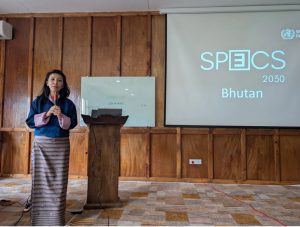Join the Leading Global Eye Health Alliance.
Membership-
Choose an alternate language here
- Membership
Acknowledging the enormous unmet need for refractive error services, combined with the availability of highly cost-effective interventions, WHO Member States endorsed the first-ever global target for refractive error coverage at the 74th WHA in 2021. To help countries achieve this target, WHO officially launched the global SPECS 2030 initiative in May 2024.
Since its launch, countries in South-East Asia have shown strong commitment to integrating SPECS 2030 initiatives into their national eye health strategies and plans. In India, a strategic SPECS 2030 workshop was convened in Assam in November 2024, bringing together policymakers, public health leaders, and key stakeholders. Similarly, between April and July 2025, multi-stakeholder workshops were organized in Thailand, Nepal, Sri Lanka, Bhutan, and the Maldives. These workshops provided an important platform for mapping national gaps, aligning priorities, and identifying concrete actions to accelerate refractive error coverage.
The challenge is real and bigger. The latest study in The Lancet Global Health estimates that globally the effective refractive error coverage (eREC) stands at 65.8%, while the South-East Asia region lags behind at 54.6%. Even more concerning, the study suggests that with the current pace of improvement no region can achieve the 2030 targets. This is a wake-up call: we need coordinated actions and scalable country tailored interventions that are both affordable and accessible.

The momentum generated by these initiatives across the South-East Asia region highlights a collective recognition: refractive error correction is not just a public health necessity, but also a catalyst for educational attainment, productivity, and overall quality of life. By embracing SPECS 2030, countries in South-East Asia are taking a bold, united step to make sure no one is left behind due to uncorrected refractive error.